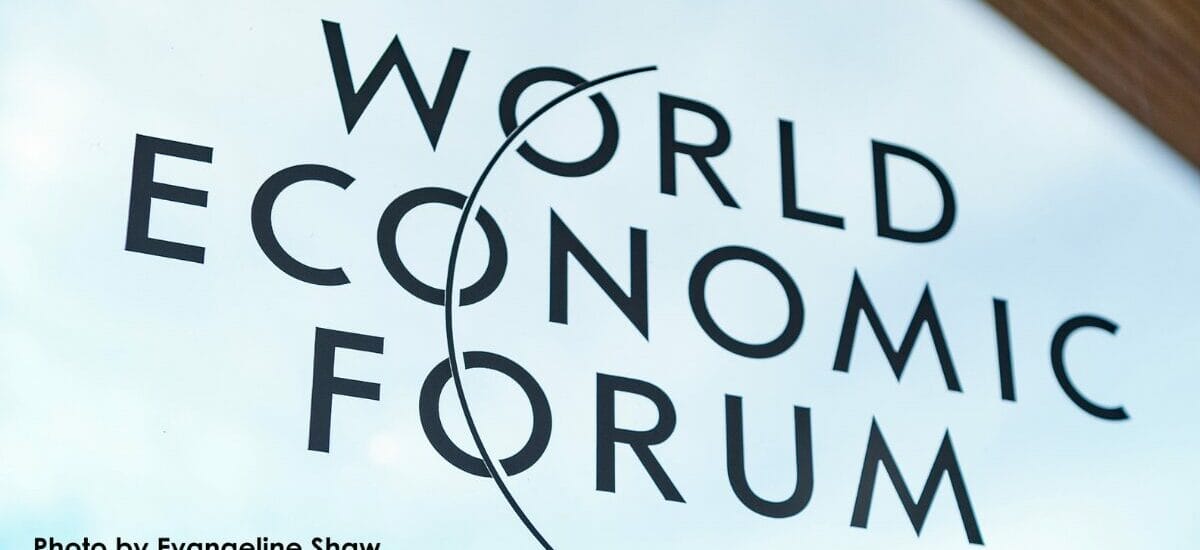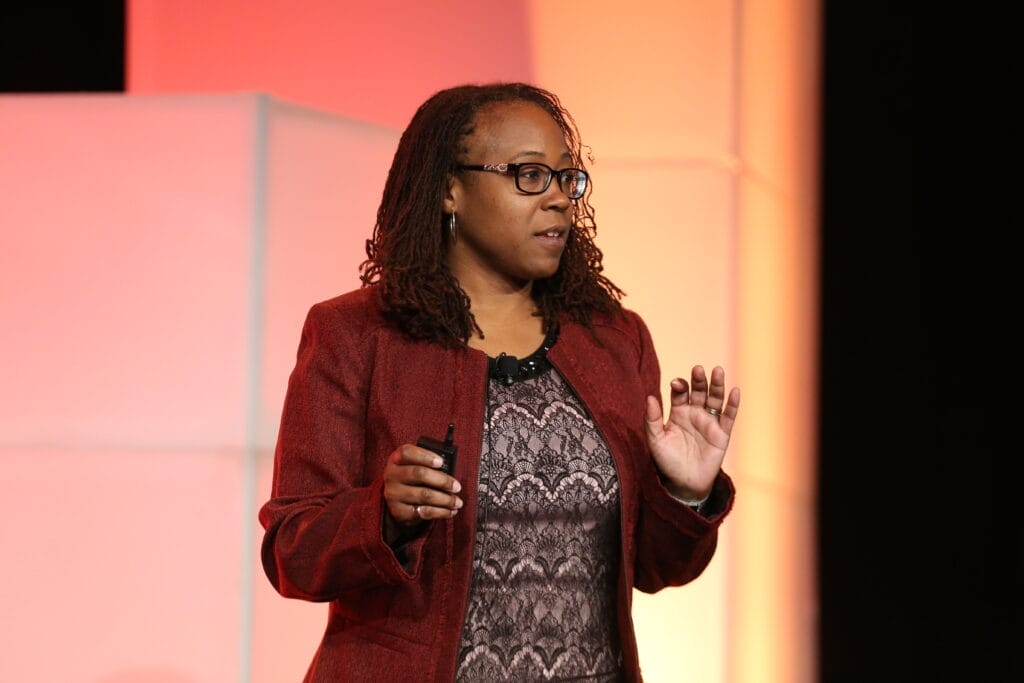
World Economic Forum Recap: 7 Experts Showcase a Brighter Future
These major themes will be top of mind in 2024.
Whitney Jennings | February 1, 2024
Last month, global thought leaders convened in Davos, Switzerland at the 54th Annual World Economic Forum (WEF) Meeting, bringing industry, academia and government leaders together to discuss the present – and future – of business and society. With many global issues top of mind – from the regulation and implementation of AI to solving humanitarian crises – we are excited to highlight seven of our own Stern clients who brought their deep research and fascinating insights to keynotes, panel discussions and interviews to uncover what CEOs of today are thinking about and acting on for tomorrow.
Azeem Azhar | Global Futurist and Exponential Thinker Who Helps Leaders Break Down the Complexity of Emerging Technologies and their Impact on Economies and Society
An exceptional moderator, speaker and advisor, Azhar facilitated a discussion on sifting through the AI noise and participated in a panel on creating value in the workforce though AI augmentation. One of the top tech analysts and futurists in the world, he quickly summarized the AI landscape and what the top experts have gotten wrong about AI.
“One of the dangers of last year was that people started to lose their faith in technology. Ordinary voters would start to dislike this path of what is quite a helpful technology, and technology is what provides prosperity. We need to have more grown-up conversations, more civil conversations, more moderate conversations about what that reality is.” – Azeem Azhar
Visit Azhar’s popular Exponential View blog for additional insights; listen to the latest episode of his Exponential View podcast for his top trends: Azeem’s 2024 Trends: AI, Energy, and Decentralization; and follow him on LinkedIn for daily insights on AI and emerging technologies.
Erik Brynjolfsson | Foremost Authority on Generative AI and the Future of Work; Leading Expert on Technology’s Effect on Business Strategy, Productivity, Performance, Digital Commerce and Intangible Assets; Director of the Stanford University Digital Economy Lab
Brynjolfsson delved into the transformative world of jobs to explain his research on how predictive AI affects occupations.
“All of us have been playing with Midjourney and ChatGPT and a lot of really cool technologies. If 2023 was the year of playing with those great technologies, I think 2024 is going to be the year of harvesting real productivity gains. In other words, it’s the year that AI gets a body and starts actually being able to do things, transforming the world, transforming work, transforming productivity.” – Erik Brynjolfsson

Ayanna Howard | Pioneering Innovator, Entrepreneur and Inventor of Robotic Technologies and Artificial Intelligence for Industry, Health Care and Education; Dean of the College of Engineering, The Ohio State University
Howard enlightened audiences on how to trust technology and about partnering with “robo-allies.” When asked about the current challenges in developing robotics, she replied:
“One of the things we really need to focus on is inclusion… the world is diverse… the U.S. has one perspective versus Japan, versus Europe, versus Africa. When we think about robotics, how do we give people in their own communities the choice to figure out what the values are of their robotic systems, what it should do, what it should not do? Who has priority?” – Ayanna Howard
Dava Newman | Aerospace Pioneer and Multidisciplinary Authority on the Requirements of Human Performance On and Beyond Earth; MIT Media Lab Director
In an enlightening keynote, Newman brings us into her world of analyzing the vital signs of Earth using satellites in space to tell the story of how the planet is heating up, the human-related impact of this transition, and what individuals can do to maintain Earth’s biodiversity.
“In all that temperature data, 2023: hottest year we’ve ever had. Guess what? It’s the coolest year of the next 100 years… We immerse people in the data. We can give people agency. What decisions should we be making for the betterment of our local communities, but globally overall? I’m optimistic, I think we can do this.” – Dava Newman
Alexander Betts | Authority on Refugees and Human Migration; Professor of Forced Migration and International Affairs, University of Oxford
Betts centered his remarks on the data behind the Kakuma refugee camp in Kenya to highlight, through first-person refugee stories, the economic lives and contributions of the people within. After offering solutions for how businesses and governments can work together to address this humanitarian crisis to the mutual benefit of the host communities and refugees alike, he facilitated a panel discussion that illuminated the critical junction at which we sit regarding refugees across the world.
“It’s not only refugees who benefit. We know from research done in Europe that when refugees are perceived to make an economic contribution, they’re more likely to be welcomed by receiving populations. In our research, we found that in camps in Ethiopia, Uganda and Kenya, when refugees engage in economic transactions, through entrepreneurship or through employment relationships, the host community is more likely to have a tolerant and appreciative attitude of their presence.” – Alexander Betts
Andrew McAfee | Globally Acclaimed Researcher, Writer and Thinker About Technological Progress and the Changes It Brings; Principal Research Scientist, MIT Sloan School of Management
In a panel addressing a cornucopia of global risks, McAfee offered his research and insights on how leaders can ensure AI is a solution, rather than a problem, for the world.
“Every powerful technology has brought a new bundle of risks with it, [AI] is no exception… the ground rule is that when a bundle of technologies this powerful comes along, the incumbents very often stumble… the incumbent countries very often stumble… I’m even more concerned about the incumbent companies because history tells us that the companies at the top at the start of a transition are not the ones on top at the end of a transition… the third level is the individual human being – every powerful technology changes the labor force, it makes some skills obsolete, it increases demand for new ones, and for incumbent job holders, this is a period of challenging confrontation… because it upsets the status quo so much, it is a transition that brings risks and challenges, particularly to the incumbents.” – Andrew McAfee

Gary Marcus | Leading Authority in Artificial Intelligence, Large Language Models and Deep Learning; Renowned AI Skeptic, Voicing Policy and Safety Recommendations for ChatGPT, BingAI and Other Models
For WEF’s “The Mind and the Machine” panel, AI researcher, human language development and cognitive neuroscience expert Marcus puts into perspective what is possible in the near and long term with AI.
“These tools are going to become Trojan horses… the other thing that makes policy complicated is that the pace of development here is not really predictable… I still think we’re a long way from artificial general intelligence. None of us really know how fast this is moving. It’s certainly going to move reasonably fast, and this kind of technology is going to be used as a Trojan horse. We need to think about that.” – Gary Marcus
In an unpredictable business environment, leaders require fresh, forward-thinking and optimistic perspectives to make the best decisions. Stern Strategy Group connects you with renowned thought leaders whose insights, strategies and management frameworks help organizations fuel growth and disruptive innovation to better compete in a constantly changing world. Let us arrange for these esteemed experts to advise your organization via virtual and in-person consulting sessions, workshops and keynotes.